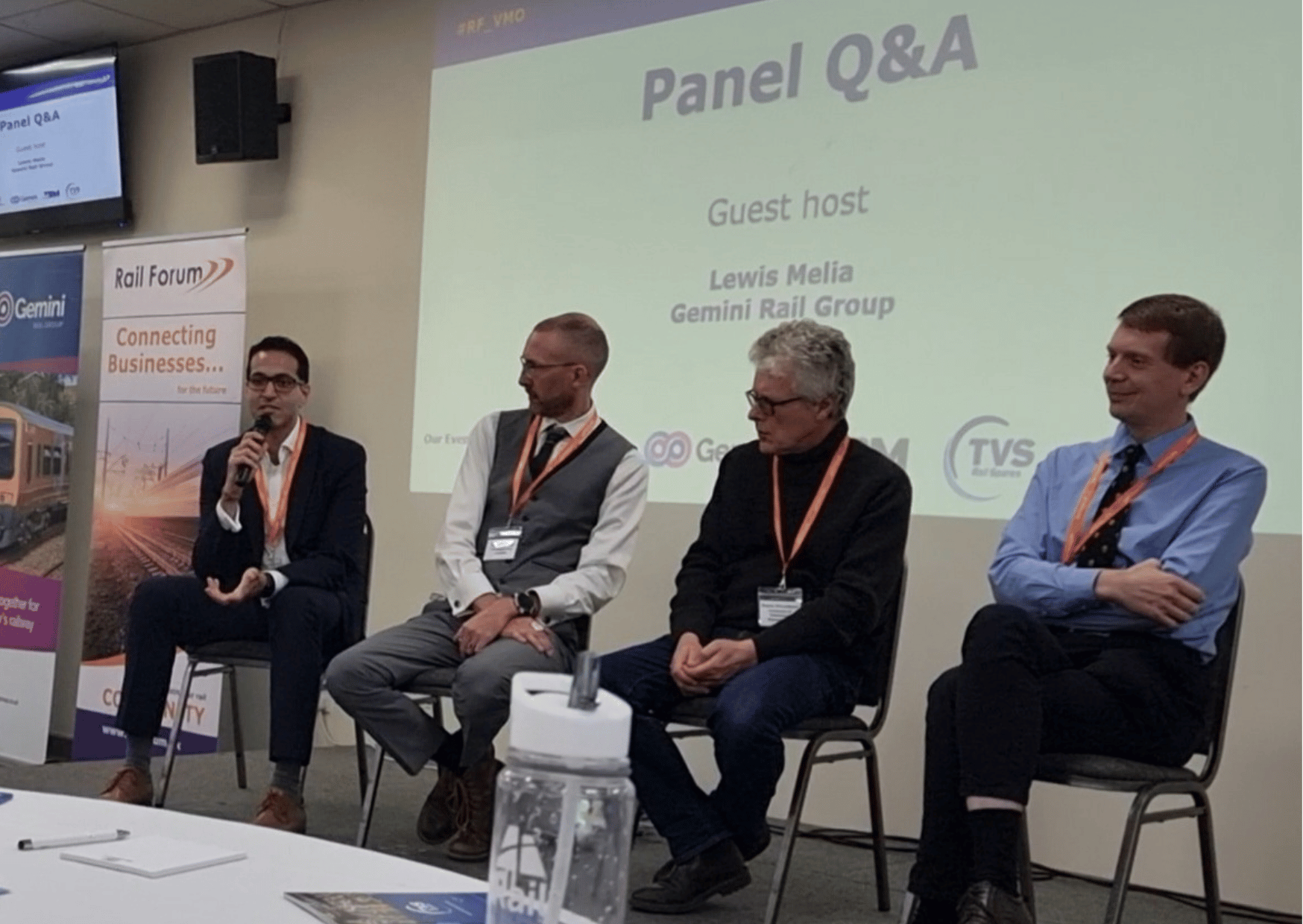A recent Rail Forum event in Crewe brought together leading experts in the rail industry to discuss the challenges of maintenance and obsolescence.
Belvoir Rail was proud to be a sponsoring Event Partner of the event, which featured an impressive lineup of speakers including representatives from RSSB, Transport for London, Eversholt Rail, Alstom, Unipart Rail, Transport for Wales, East Midlands Railway, and Porterbrook.
Functional and Technical Obsolescence
During the event, Stuart Broadbent from the Institute of Obsolescence Management explored the challenges of functional and technical obsolescence and discussed strategies like supported obsolescence management plans, emphasising the value of building strong partnerships.
Rail Standards Landscape
Robert Shemilt from RSSB shed light on the rail standards landscape, highlighting how changes in standards and legislation can lead to obsolescence.
Managing Older Fleets
Ian Rawlings from Transport for London addressed the crucial topic of managing older fleets within TfL and navigating obsolescence. He shared insights into handling the diverse age range of TfL's fleets, including strategies like increasing spare parts, considering alternative replacements, and the practice of reverse engineering. Additionally, he provided insights into residual life assessments, which inform intervention programs for asset lifespan, feeding directly into project and asset management planning.
Maintenance Regimes and Supply Chain
Shakil Ismail from Eversholt Rail spoke about the merits of maintenance regimes and how the supply chain can help obsolescence management. He discussed the changing landscape of heavy maintenance and spoke about the impending challenge of TCMS and onboard systems obsolescence.
Comprehensive Obsolescence Management
Peter Broadley from Alstom talked about vehicle maintenance in the context of a changing UK fleet. He emphasised the need for comprehensive obsolescence management, including risk assessments, supplier management plans, and obsolescence monitoring.
A Suppliers Approach
Mark Spreadbury from Unipart Rail shared their approach to obsolescence management which begins with a detailed review of the required parts to keep a fleet in service. They rate each item based on current availability, consequence of obsolescence and timescales, allowing for prioritisation of issues.
Introducing Older Fleets into Service
Andrew Gainsbury from Transport for Wales addressed the challenges of introducing older fleets into service, particularly the difficulties posed by short platforms.
Customer-Centric Approach
Alex Greig-Cooper from East Midlands Railway highlighted the customer-centric approach of the company and provided insights into ow this informs their refurbishment strategy.
Knowledge and Best Practice Sharing
Mick Ridgway from Porterbrook emphasised the importance of knowledge and best practice sharing for optimising fleet performance, safety, reliability, and longevity. He provided examples of various areas addressed by the Electrostar User Group, including HVAC, energy metering, and corrosion.
Importance of Knowledge Transfer and Skills Development
Throughout the event, there was a consistent theme of increasing importance of knowledge transfer and investing in key skills. Participants welcomed the need to stay aware of skills obsolescence and to prioritise this in their strategies.
Future Pipeline for Obsolescence
The event made it evident that there is a pressing need for a visible future pipeline for obsolescence, which will drive better planning and a proactive approach to vehicle lifecycle management.
Overall, the event was a valuable and enlightening experience. Belvoir Rail, as a sponsoring partner, takes pride in contributing to the efforts to address obsolescence challenges in the rail industry. The event showcased the industry's commitment to finding solutions to these pressing issues.


